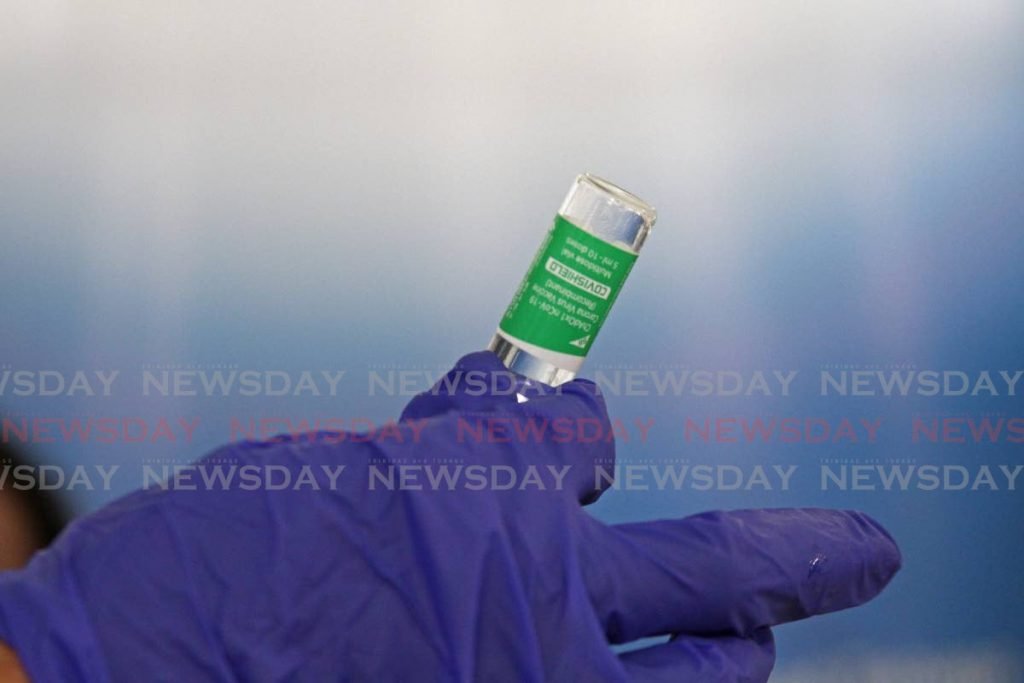Vaccine diplomacy, a new power tool for rich countries

Countries around the world have started rolling out covid19 vaccines to their populations after the World Health Organization (WHO) gave its stamp of approval on February 15.
There has been a global concern that small island developing states (SIDS) would be placed at a disadvantage as the newest form of diplomacy in the international fora takes centre stage.
Vaccine diplomacy is the term being used to describe how the larger states wield their “soft power” to strengthen ties and enhance their power and global status.
Dr Georgina Chami, international diplomacy lecturer at the University of the West Indies' Institute of International Relations, explained that fighting diseases has long been used as a means for extending “soft power” and winning friends.
“In response to the Sars epidemic in 2002, China, as one example, provided assistance and support to affected countries to boost its universal power status. Most certainly, through its vaccine programmes, some countries have sought new avenues of building trust, strengthening regional ties and enhancing their power and status.
“Given the complexities of global health, and the needs of the billions excluded from the benefits of vaccine science and innovation, a truly global response is needed. Vaccine diplomacy offers ways of synergising efforts of many countries and peoples in tackling the pandemic in the interest of mankind.”
India has been ahead of the game in vaccine distribution, with Caricom being one of the beneficiaries of nearly 500,000 Oxford-Astrazeneca doses. China’s Sinopharm CoronaVac has been distributed in countries such as Pakistan, Cambodia, Nepal, Sierra Leone and Zimbabwe, while Russia’s Sputnik V also has large amounts of dependants including several countries in Latin America and the Caribbean.
But is the distribution of one of the most demanded vaccines at risk of being used as a “just a tool” or will it be equally distributed to fight the pandemic?
It is a concern that many have addressed including TT’s Prime Minister and WHO’s director-general Dr Tedros Adhanom Ghebreyesus, as they called for equity of access to covid19 vaccines.
Last month, Ghebreyesus also advised that the world was on the edge of a “catastrophic moral failure” because of unequal covid19 vaccine policies and that “some countries and companies continue to prioritise bilateral deals, going around Covax, driving up prices and attempting to jump to the front of the queue.”
Chami said the covid19 pandemic has undoubtedly emphasised the issue of global inequity in resources and has challenged the mechanisms in place for demand and supply.
“Countries are competing for vaccines and the demand is outstripping the supply and is not meeting their expectations. Therefore, the gap between the “haves” and “have nots” continues to widen.
“With the introduction of the Covax programme, the purpose was to fast-track the development and production of covid19 vaccines and ensure equitable access and distribution by countries globally.
“Presently, we are witnessing the opposite with the prospect of global health becoming a new arena for global power competition and rivalry. Looking ahead, however, once supply meets the demand then there would be the opportunity for greater cooperation.”
This fear of unequal distribution was emphasised by Dr Rowley on Thursday at the 32nd Inter-Sectional Caricom Heads of Government meeting.
He called on Caricom states to share its vaccines with other states who were unable to acquire vaccines and noted that the regional body would seek to engage the US for assistance.
“We agreed that whoever (Caricom states) get vaccines, will share as much as they are able to those who do not have because it appears as though, for a while, we would not be able to access vaccines as we anticipated.”
“A very specific decision has been taken for that to happen. We also agreed that we shouldn’t just aim to so that contact at the level of the presidency but all other levels of the US Congress.”
He further noted that the Pan American Health Organisation (PAHO) representatives were also trying to Caricom states by attaining additional tranches throughout the year to satisfy the region.
Other powerhouses such as China, Russia and even Cuba have tossed their hat into the covid19 vaccination ring and their efforts must also be commended, Chami said and with a fragile global economy, they would also be seeking to recover costs of such investment.
“They are currently unable to meet the vaccine supply demands of their respective domestic markets and still export to countries around the world. The production represents the main obstacle to this challenge, while many high-income countries have pre-ordered more doses than they need. These countries want to inoculate their entire population against covid19 with a home-grown vaccine this year.
“These countries are expending their resources both financially and non-financially to ensure a reliable supply and suitability of vaccines. These countries are also about recovering costs of such investment.”
The Covax scheme, she explained, was created to ensure that low and lower-middle-income along with some other eligible countries totalling 92 countries with limited resources can have access to vaccine supplies with some of the cost being covered.
“Other countries in the scheme will self-finance their purchases but will benefit from competitive prices and guaranteed supplies. So far, 190 countries (soon to be 191, once the United States formally joins) are participating in the Covax facility.
Can TT and Caricom look to China, Russia or Cuba for covid19 vaccination assistance?
Already countries such as Argentina, Brazil, St Vincent and the Grenadines and Venezuela have been listed on Sputnik V’s list for vaccines.
Would TT be flagged if planned to join these states vaccination schemes? Well, according to Chami, this would not be a problem.
“This is not an issue. Latin American countries as Brazil, Chile and Bolivia are already acquiring vaccines from Russia and China."


Comments
"Vaccine diplomacy, a new power tool for rich countries"